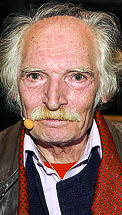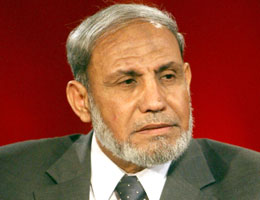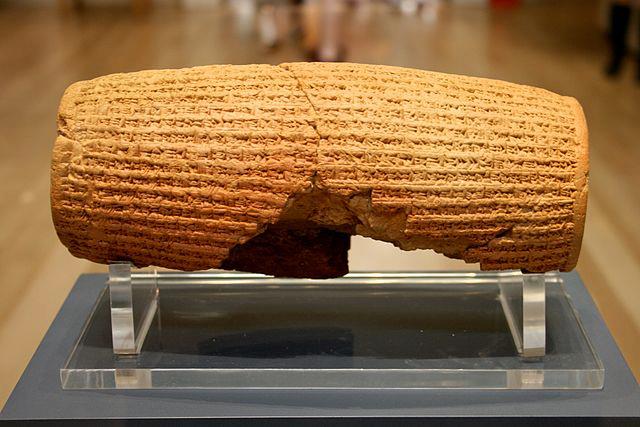December 13-2013

. . . novelist
The Culture Ministry is mulling over publication of the Persian version of Mahmud Dowlatabadi’s acclaimed novel “The Colonel,” Deputy Culture Minister Abbas Salehi announced Monday.
The Culture Ministry has been talking about revising book censorship ever since President Rohani took office four months ago. But no actual changes have so far surfaced. Culture Minister Ali Jannati has said the censorship rules allowed censors to operate on whim and that even the Qoran could not be printed in Iran if the actual rules were firmly adhered to.
Cheshmeh, a Tehran-based publishing company, submitted “The Colonel” to the Culture Ministry in 2008 seeking a license to publish it.
Former officials at the ministry asked Dowlatabadi to make some modifications. However, they refused to approve the book even after it was revised.
“The Colonel” has thus far only been published abroad in translation in Germany, the United States and Britain. The book is about the life of an Iranian colonel who recalls his memories of families and friends in solitude at the time of the 1979 revolution.
The German version of the book, which was published by Haus in Germany in 2009, received Switzerland’s Jan Michalski Prize last month.
The English version was among the finalists of the US 2013 Best Translated Book Award.
Deputy Minister Salehi said, “I’ve read the book; I’ve read all the books written by Dowlat-abadi since I was a young man. He is the pride of Iran’s literature and the Khorasan region, so the publication of his book in Iran would be an honor for the country.”
“The Colonel” is a novel about nation and family, beginning on a rainy night when two policemen summon a colonel in the Shah’s army to collect the tortured body of his daughter, a victim of the Islamic revolution. Dowlatabadi wrote the novel in the 1980s. “I hid it in a drawer when I finished it,” he said.
Born in 1940, Dowlatabadi was the most prominent Iranian novelist of the 1980s. Self-educated and forced to work from childhood, he spent part of his younger adult years as a stage actor in Tehran.
Dowlatabadi was born to a poor shoemaker in Dowlatabad, a village in the northwestern part of Khorasan Province. He worked as a farmhand and attended elementary school, where he learned to read. Books were a revelation. “I read all the romances that we had at that time around the village,” he said in an interview. “I would read on the roof of the house with a lamp…. I read ‘War and Peace’ that way.”
Though his father had little formal education, he introduced his son to the Persian classical poets—Saadi, Shirazi, Hafez and Ferdowsi. “[My father] generally spoke in the kind of language they used,” Dowlatabadi said.
As a teenager, Dowlatabadi took up a trade like his father and opened a shop. One afternoon, he found himself thoroughly bored. He closed the shop, gave the key to a boy, and told him to tell his father, “Mahmud’s left.” He caught a ride to Mashhad, where he worked for a year before leaving for Tehran to pursue theater.
There Dowlatabadi worked for a year before he could afford to take theater classes. When he did, he rose to the top of his class, still working numerous other jobs. He was an actor—and a shoemaker, barber, bicycle repairman, street barker, cotton picker and cinema ticket taker. Around this time he also ventured into journalism, fiction, and screenplays. “Whenever I was done with work and wasn’t preoccupied with finding food and so on, I would sit down and just write,” he said.
























